-
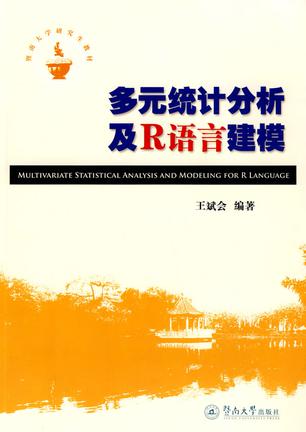
多元统计分析及R语言建模
《暨南大学研究生教材•多元统计分析及R语言建模》共分15章,主要内容有:多元数据的收集和整理、多元数据的直观显示、线性与非线性模型及广义线性模型、判别分析、聚类分析、主成分分析、因子分析、对应分析、典型相关分析等常见的主流方法。《暨南大学研究生教材•多元统计分析及R语言建模》还参考国内外大量文献,系统地介绍了这些年在经济管理等领域应用颇广的一些较新方法,可作为统计学专业本科生和研究生的多元分析课程教材。《暨南大学研究生教材•多元统计分析及R语言建模》还可作为非统计学专业研究生的量化分析教材。 -
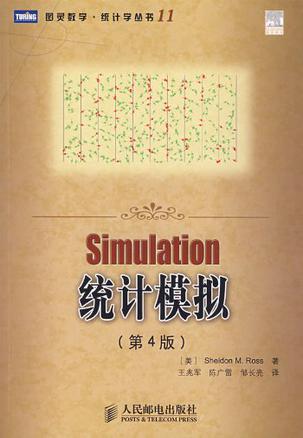
统计模拟
《统计模拟(第4版)》首先介绍了产生某些分布随机数的一些方法, 之后又较详细地介绍了统计模拟中常用的一些方法, 如离散事件模拟方法、方差缩减技术、模拟数据的统计分析方法、统计验证方法、MCMC 方法等; 并通过某些实例, 对这些方法的应用进行了较详细的说明。《统计模拟(第4版)》最后还提供了不同难度的习题。统计模拟是数理统计中非常有用的工具之一, 它是利用计算机产生某概率模型的随机数,再通过这些随机数来模拟真实模型。 《统计模拟(第4版)》可作为高等院校数学、统计学、科学计算、保险学和精算学等专业的本科教材, 也可作为工程技术人员和精算师等应用工作者的参考用书。 -
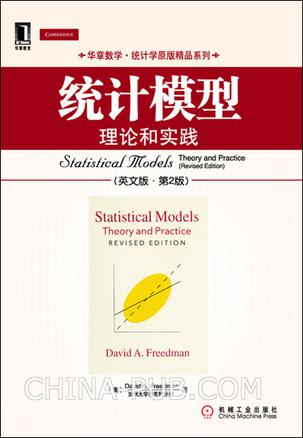
统计模型
《统计模型:理论和实践(英文版·第2版)》内容简介:Some books are correct. Some are clear. Some are useful. Some are entertaining. Few are even two of these. This book is all four. Statistical Models: Theory and Practice is lucid, candid and insightful, a joy to read. We are fortunate that David Freedman finished this new edition before his death in late 2008. We are deeply saddened by his passing, and we greatly admire the energy and cheer he brought to this volume——and many other projects——-during his final months. -

Modern Multivariate Statistical Techniques
This is the first book on multivariate analysis to look at large data sets which describes the state of the art in analyzing such data. Material such as database management systems is included that has never appeared in statistics books before. -
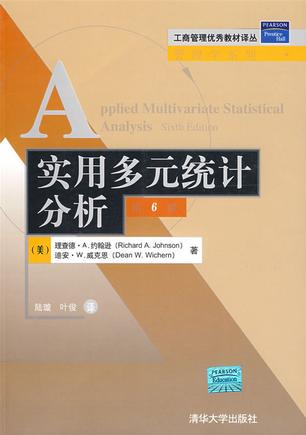
实用多元统计分析
《实用多元统计分析(第6版)》多元统计分析是统计学中内容十分丰富、应用范围极为广泛的一个分支。在自然科学和社会科学的许多学科中,研究者都有可能需要分析处理有多个变量的数据的问题。能否从表面上看起来杂乱无章的数据中发现和提炼出规律性的结论,不仅需要对所研究的专业领域有很好的训练,而且要掌握必要的统计分析工具。对研究者来说,《实用多元统计分析》是学习掌握多元统计分析的各种模型和方法的一本有价值的参考书:首先,它做到了“浅入深出”,既可供初学者入门,又能使有较深基础的人受益;其次,它既侧重于应用,又兼顾必要的推理论证,使学习者既能学到“如何”做,又能在一定程度上了解“为什么”这样做;最后,它内涵丰富、全面,不仅基本包括各种在实际中常用的多元统计分析方法,而且对现代统计学的最新思想和进展有所介绍。 -
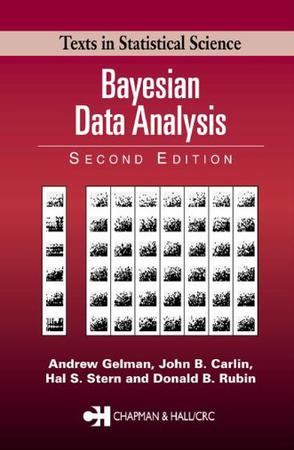
Bayesian Data Analysis, Second Edition
Incorporating new and updated information, this second edition of THE bestselling text in Bayesian data analysis continues to emphasize practice over theory, describing how to conceptualize, perform, and critique statistical analyses from a Bayesian perspective. Its world-class authors provide guidance on all aspects of Bayesian data analysis and include examples of real statistical analyses, based on their own research, that demonstrate how to solve complicated problems. Changes in the new edition include: Stronger focus on MCMC Revision of the computational advice in Part III New chapters on nonlinear models and decision analysis Several additional applied examples from the authors' recent research Additional chapters on current models for Bayesian data analysis such as nonlinear models, generalized linear mixed models, and more Reorganization of chapters 6 and 7 on model checking and data collection Bayesian computation is currently at a stage where there are many reasonable ways to compute any given posterior distribution. However, the best approach is not always clear ahead of time. Reflecting this, the new edition offers a more pluralistic presentation, giving advice on performing computations from many perspectives while making clear the importance of being aware that there are different ways to implement any given iterative simulation computation. The new approach, additional examples, and updated information make Bayesian Data Analysis an excellent introductory text and a reference that working scientists will use throughout their professional life.